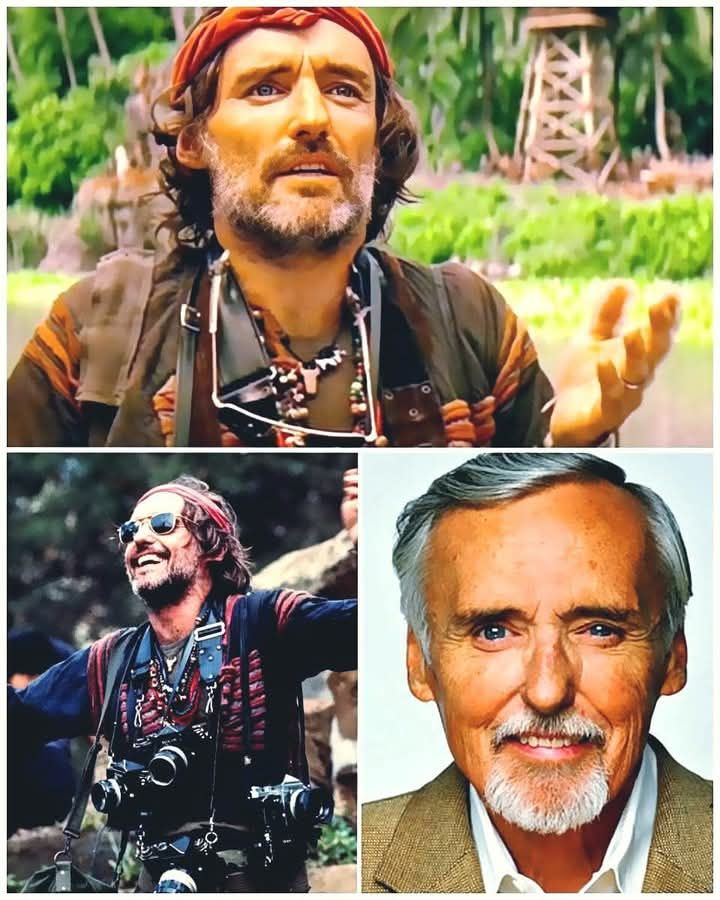When Dennis Hopper arrived in the Philippines to film *Apocalypse Now* in 1976, he brought with him a storm of unpredictability. Francis Ford Coppola was already neck-deep in production nightmares—typhoons, delays, and casting headaches—when Hopper entered the picture. His casting as the unhinged American photojournalist wasn’t part of the original plan. In fact, the role had no actor attached until screenwriter John Milius and others casually floated Hopper’s name. Despite Hopper’s reputation for being volatile, Coppola ultimately took the gamble—a decision that would become a turning point in the film’s chaotic brilliance.
True to form, Hopper arrived disoriented, high, and disheveled. But instead of derailing the production, his chaotic presence enhanced the surreal world Coppola was constructing. Hopper’s manic energy fit seamlessly into the deranged environment surrounding Colonel Kurtz’s compound. With little more than a concept to work from, Hopper improvised nearly all of his lines, transforming abstract direction like “truth,” “horror,” and “madness” into electric, unfiltered monologues. Coppola later admitted he couldn’t direct Hopper in any conventional way—he could only release him into the scene and capture what unfolded.
The jungle itself became part of Hopper’s method. The stifling heat, the erratic schedule, and his own mental state pushed his performance into new territory. His sweat-soaked face and twitching eyes weren’t special effects—they were reality. Stories of Hopper disappearing into the jungle, clashing with co-stars, and even sleeping outdoors only deepened his legend. Yet when the cameras rolled, he channeled every ounce of chaos into his character, making him not just believable, but mesmerizing. His interactions with Martin Sheen’s Captain Willard were often unscripted yet loaded with tension and strange reverence.
Hopper’s scenes with Marlon Brando were so volatile they were often filmed separately due to their clashing styles and Hopper’s erratic behavior. Despite this, Hopper emerged as a vital narrative link between Willard and Kurtz—his ramblings reflecting the spiritual and psychological breakdown at the heart of the film. What might have been a minor role became one of *Apocalypse Now*’s most haunting voices. Dennis Hopper didn’t just perform; he surrendered to the film’s madness, and in doing so, gave it a raw, unforgettable pulse.
